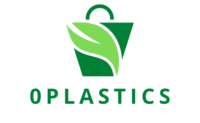In the era of heightened environmental awareness, plastic-free marketplaces are emerging as champions of change, reshaping the retail landscape by infusing sustainability into the core of consumer choices. These platforms are not just marketplaces; they are transformative agents influencing the way retail operates, fostering eco-friendly practices, and championing a paradigm shift towards a more sustainable future.
1. Redefining Consumer Expectations:
Plastic-free marketplaces are at the forefront of redefining consumer expectations. They introduce a new standard by curating products that prioritize sustainability, encouraging consumers to seek eco-friendly alternatives. In doing so, these marketplaces challenge traditional retail norms and prompt consumers to question the environmental impact of their purchasing decisions.
2. Shifting Industry Priorities:
As plastic-free marketplaces gain prominence, they influence industry priorities. Retailers, both large and small, are compelled to reevaluate their product offerings, sourcing practices, and packaging strategies. The rise of these marketplaces signals a demand for sustainable products, prompting the retail industry to prioritize eco-friendly initiatives and integrate them into their business models.
3. Encouraging Transparency:
Transparency becomes a key pillar as plastic-free marketplaces champion change in retail. Consumers are increasingly seeking information about the environmental impact of products, from their sourcing to their end-of-life disposal. In response, retailers are compelled to provide transparent information, fostering trust and accountability in the retail supply chain.
4. Nurturing Sustainable Brands:
Plastic-free marketplaces actively nurture and promote sustainable brands. By providing a platform for businesses committed to eco-friendly practices, these marketplaces offer exposure to brands that prioritize sustainability in their production processes and product offerings. This support encourages the growth of sustainable businesses, creating a positive cycle within the retail ecosystem.
5. Minimizing Packaging Waste:
A significant contribution of plastic-free marketplaces to reshaping retail is the emphasis on minimizing packaging waste. These platforms actively seek alternatives to excessive and non-biodegradable packaging, prompting retailers to explore innovative and sustainable packaging solutions. The result is a reduction in the environmental impact associated with packaging throughout the retail supply chain.
6. Fostering Circular Economy Practices:
Plastic-free marketplaces play a pivotal role in fostering circular economy practices within the retail sector. By promoting the use of reusable and recyclable materials, these platforms encourage a shift away from the linear “take-make-dispose” model towards a circular economy where resources are conserved, and waste is minimized through recycling and upcycling.
7. Inspiring Competitors to Follow Suit:
The influence of plastic-free marketplaces extends beyond their own operations, inspiring competitors to follow suit. As the demand for sustainable products grows, retailers across various industries are compelled to integrate eco-friendly alternatives into their product offerings. This domino effect, driven by consumer preferences, results in a broader transformation of the retail landscape.
8. Elevating Corporate Social Responsibility:
Plastic-free marketplaces elevate the importance of corporate social responsibility (CSR) within the retail sector. Retailers are increasingly expected to align their business practices with social and environmental values. By championing change through sustainable choices, these marketplaces encourage retailers to embrace CSR initiatives that contribute positively to the well-being of the planet.
9. Meeting the Rising Tide of Eco-Conscious Consumers:
Perhaps the most profound impact of plastic-free marketplaces on retail is their ability to meet the rising tide of eco-conscious consumers. As sustainability becomes a non-negotiable criterion for a growing number of shoppers, retailers are compelled to adapt their offerings to meet the demand for eco-friendly, plastic-free products.
In conclusion, a plastic-free marketplace is more than a commercial platform; it is an agent of change reshaping the retail landscape. By redefining consumer expectations, shifting industry priorities, encouraging transparency, nurturing sustainable brands, minimizing packaging waste, fostering circular economy practices, inspiring competitors, and elevating corporate social responsibility, these marketplaces are driving a transformative wave. As they continue to champion change, plastic-free marketplaces are proving that retail can be a force for good, aligning consumer choices with a commitment to a more sustainable and environmentally responsible future.
